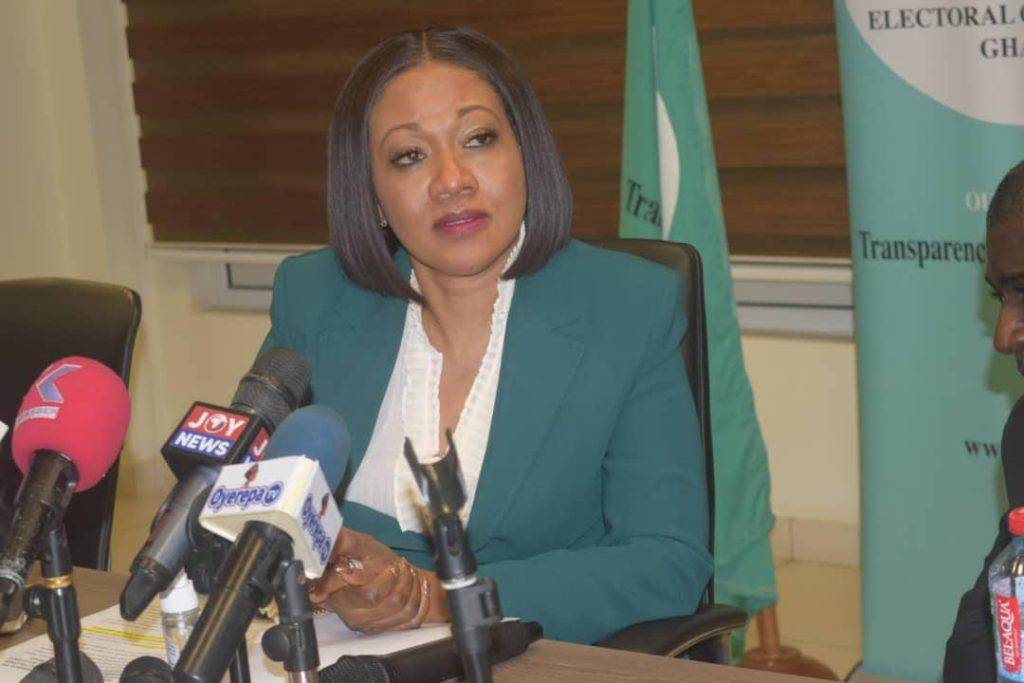ARTICLE AD
The Electoral Commission (EC) begins the voters’registration exercise for new eligible voters from today, May 7 until Monday, May 27, 2024.
The exercise is expected to last 21 days and will be conducted across all 268 district offices of the EC nationwide.

Speaking at a press conference in Accra yesterday, the Chairperson of the Commission, Mrs Jean Mensa, explained that to ensure accessibility and inclusivity, the commission has identified 785 underprivileged electoral areas where registration would be conducted.
These areas, she said often faced challenges in accessing district offices, and were selected in collaboration with field staff and stakeholders, including political parties.
She said 25 universities across the country had been chosen as registration centres due to their high population of residents on campus, facilitating the registration of a significant number of first-time voters efficiently.
Mrs Mensa added that all necessary preparations, including the gazetting of registration centres and movement plans for mobile teams, had been meticulously executed in compliance with regulations.
She added that a 21-day notice was given to political parties during an IPAC meeting, enabling them to prepare agents for the exercise.
Emphasising transparency and accountability, she said the commission has established a database of qualified personnel, ensuring their identification through names, photographs, and ID cards. Any objections raised by political parties regarding personnel would be thoroughly investigated, maintaining integrity in the process.
The chairperson reiterated that special provisions had been made for persons with disabilities and elderly citizens to receive priority attention at registration centres.
“Mobile teams will traverse electoral areas, spending two days in each area and three days at each public university registering eligible candidates.
The eligibility criteria for registration according to the commission include Ghanaian citizenship, age 18 years and above, of sound mental capacity, and residency in the intended voting district.
The EC chairperson further added that documentation such as the Ghana passport or the Ghana Card issued by the National Identification Authority card were required, adding that “Those lacking these documents can visit district offices with two registered guarantors, with a warning against guarantors vouching for more than 10 individuals.”
She revealed that the Commission had collaborated with the National Election Security Task Force (NESTF) led by the Inspector General of Police to prevent minors and foreigners from registering, thereby ensuring the integrity and legitimacy of the electoral process.
She said with the planning, robust logistical support, and a commitment to inclusivity, the Electoral Commission was poised to surpass its target of 623, 000 new registrants, bringing the voter registration process to the doorstep of every eligible Ghanaian citizen.
BY STEPHANIE BIRIKORANG

 8 months ago
39
8 months ago
39 

